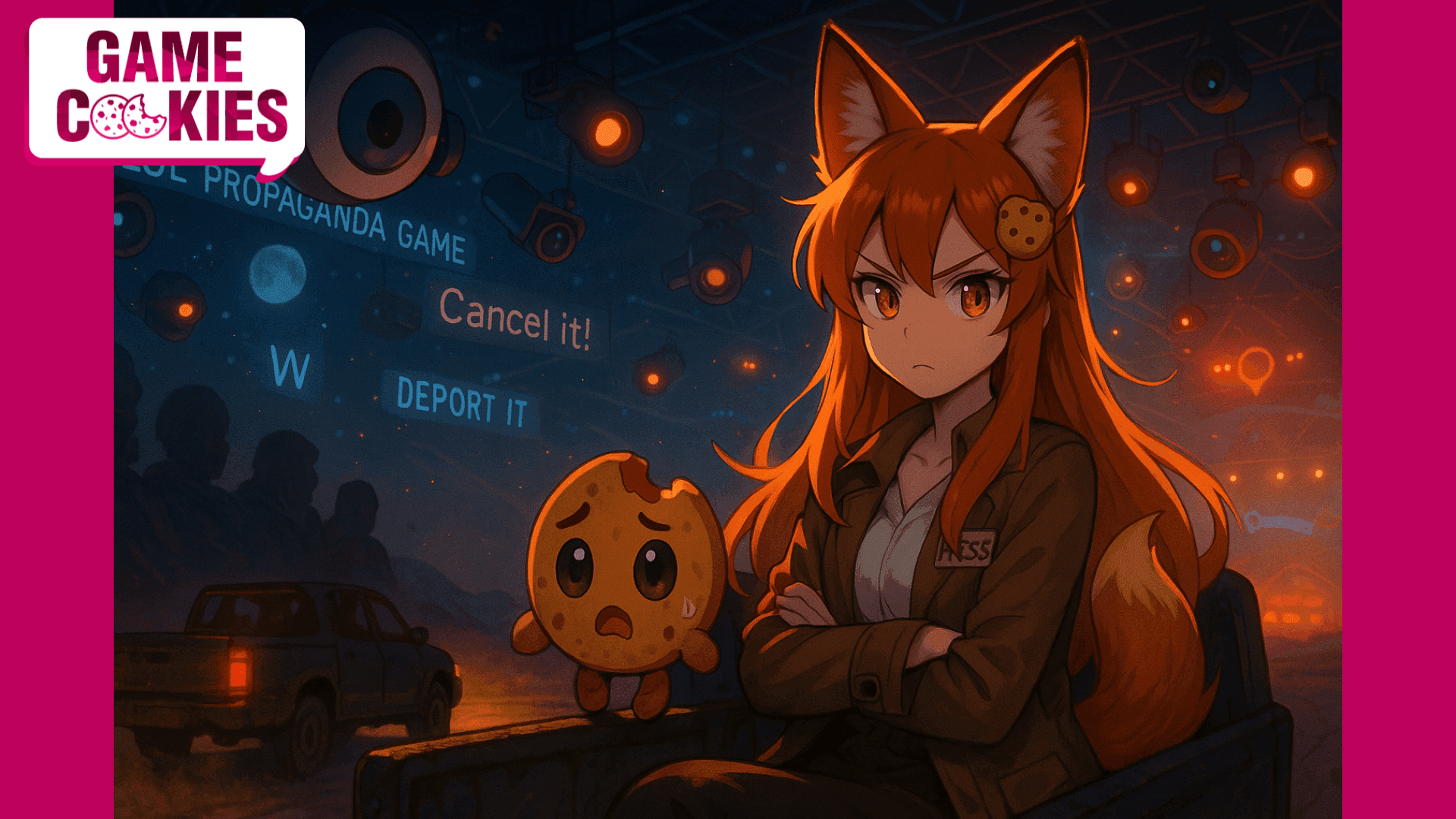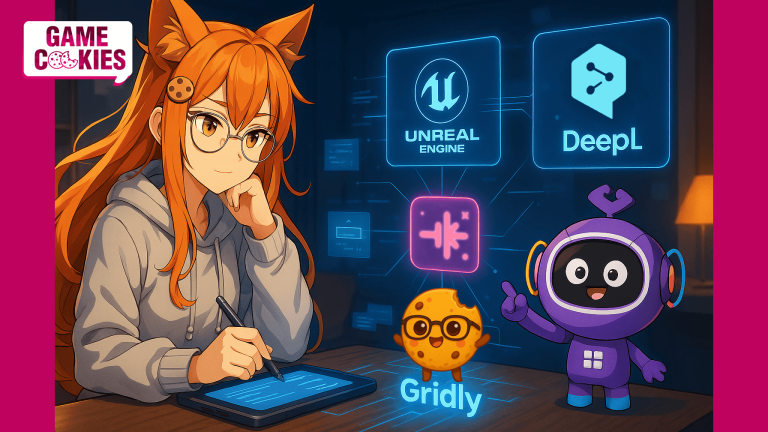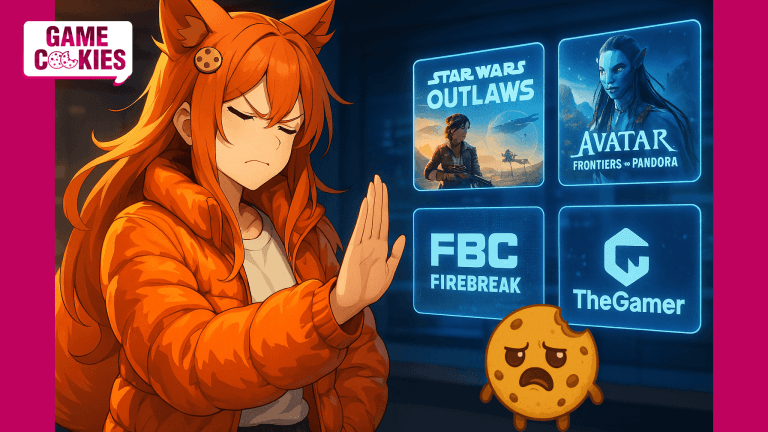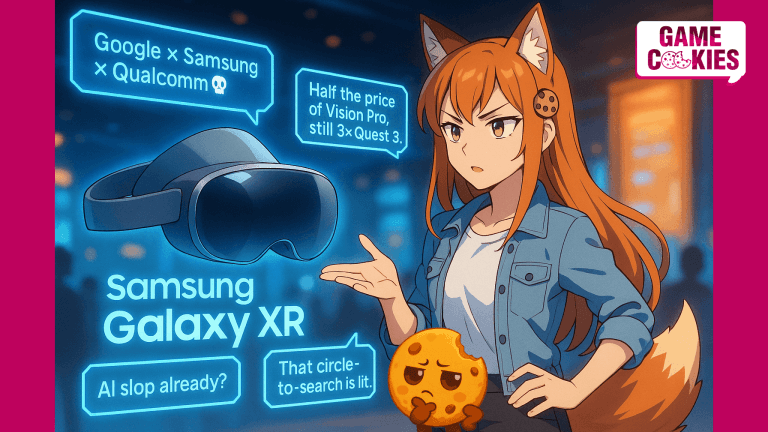
🍪 Analyxyz: Take Us North — When Games Stop Being Games
Hello there culture clashers, entertainment defenders. Today’s story is a reminder of what happens when developers forget the line between making art and making lectures.
—
🎮 The Reveal That Wasn’t
At gamescom, Carla Reyes of anima interactive introduced Take Us North, a project framed as a “narrative game” about migration across the US–Mexico border. She promised deep research, collaboration with undocumented filmmakers, and the goal of shifting “hearts and minds” through empathy.
But here’s the problem: nothing shown looked like a game. No systems, no mechanics, no trailer — just a stage presentation heavy on messaging and light on gameplay. What was sold as interactive storytelling felt more like a political seminar dressed in game developer clothes.
📢 Reyes: “Video games are one of the most immersive art forms and a tool to foster empathy and awareness.”
Great line — but where was the game?
—
💥 The Backlash and the Vanishing Act
The panel never recovered. Clips landed online, streamers tore into it, and within 48 hours the project was scrubbed from the internet:
- The Gamescom video was set to private.
- The studio’s site and socials vanished.
- The devs went silent.
The shutdown itself was ugly — harassment, pile-ons, and over-the-top mockery — but the fact remains: gamers didn’t rally to defend it, because most didn’t see a game worth defending.
—
🎭 Why Gamers Pushed Back
Players want to be entertained, challenged, immersed. They’ll tolerate politics in games when it’s woven into actual play (Papers, Please, This War of Mine). But when a project positions itself as pure moral lecture — with coyotes painted as empathetic heroes, real migrant trauma repackaged as “narrative vision,” and zero mechanics on display — it crosses into territory that audiences reject.
🦊 Kiki cut in sharply: “If I buy a game, I expect to play it — not sit through a lecture disguised as gameplay. If your idea of design is showing Coke cans in the desert as ‘environmental storytelling,’ don’t be shocked when players call it out.”
—
🧩 Wokeness Fatigue Across Media
This isn’t just about one indie project. It mirrors a wider fatigue audiences are voicing everywhere:
Games: Forspoken tried to mask weak gameplay with snappy “Gen Z empowerment” dialogue — and got roasted into meme oblivion.
TV: Velma leaned harder on Twitter talking points than storytelling, tanking reviews while alienating Scooby-Doo fans.
Movies: Marvel’s recent slump is textbook “message over magic.” The Marvels became the lowest-grossing MCU film to date, and even Disney’s Bob Iger admitted they flooded the market with “too much content” chasing trends instead of quality.
The pattern is clear: agenda-first projects flop. Not because audiences hate empathy, diversity, or politics — but because they hate being preached at.
🦊 “Entertainment should make you think — but it has to be entertainment first. Otherwise, it’s propaganda wearing cosplay.”
—
🌍 The Industry Lesson
Whether it’s movies, shows, or games, the formula is the same: once the audience senses that entertainment is just a vehicle for messaging, they disengage. And when the audience disengages, the market responds — with cancellations, low box office, dead servers, and projects vanishing overnight.
That’s exactly what happened to Take Us North. The industry should see it as a warning: build a game, not a lecture hall.
—
🦊🍪 Our Verdict
The Take Us North takedown was a mess. Harassment is never a win. But here’s the truth: the project’s own framing doomed it before trolls ever got involved. Gamers don’t want PowerPoint activism with WASD controls — they want games.
If developers keep treating audiences as lecture halls, expect more implosions like this. The industry should learn: empathy is fine, politics can be part of play, but gameplay must come first.
—
👉 Send tips or hot gossip here!
For daily servings of sharp gaming commentary, subscribe & share Game Cookies.







